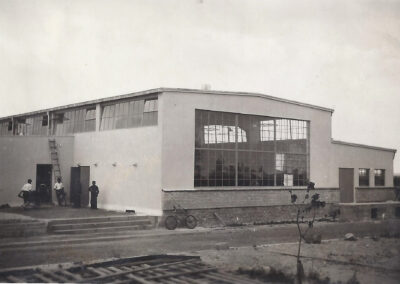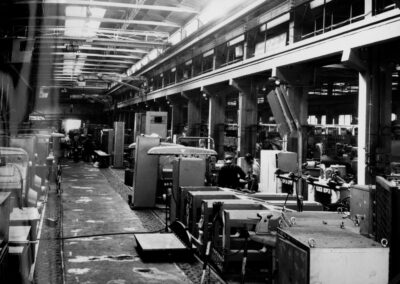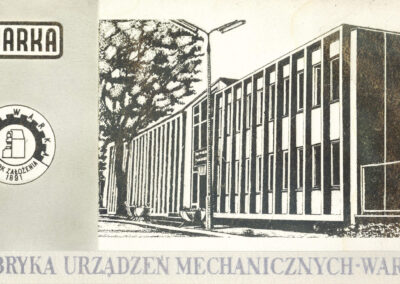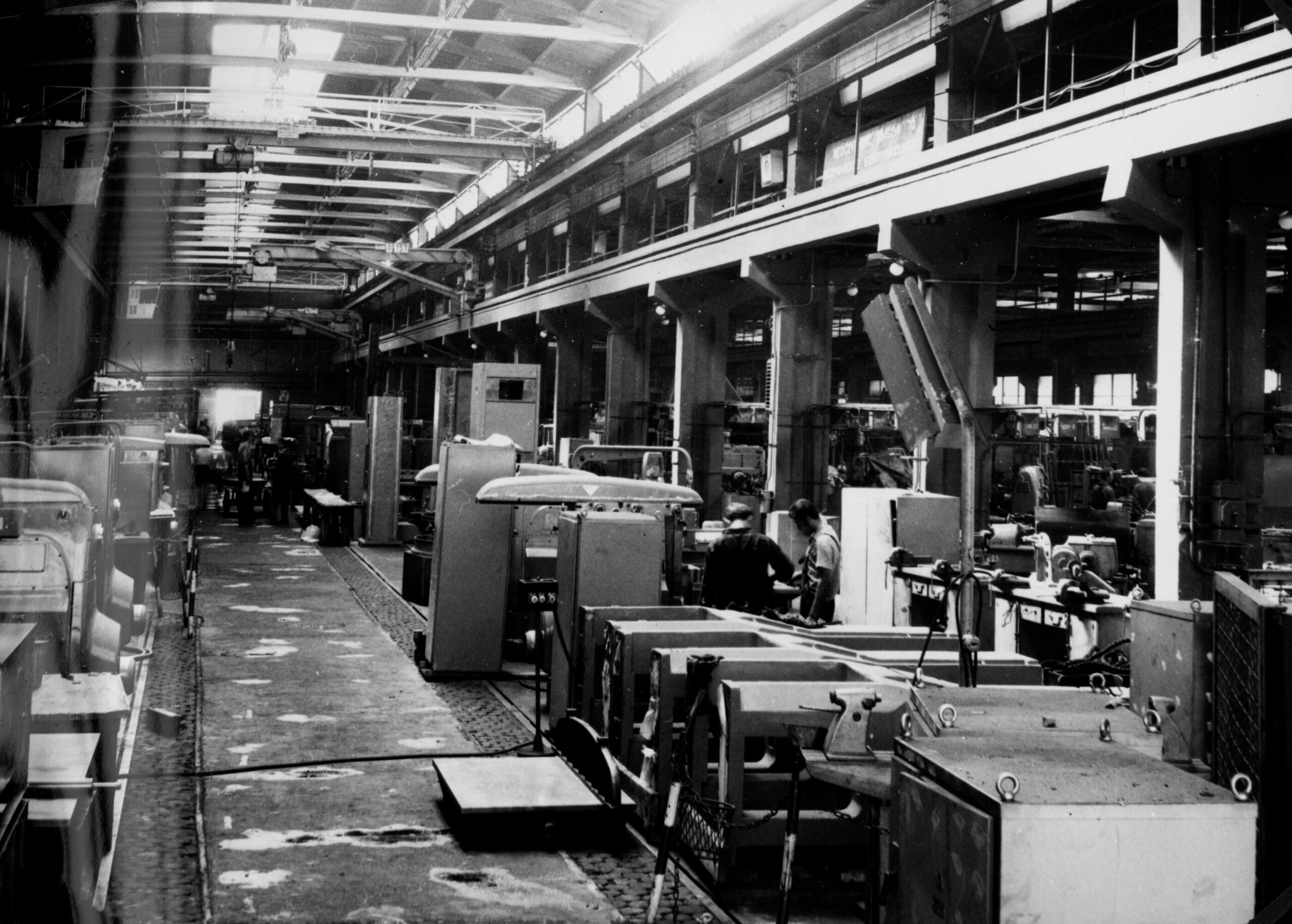
x
Mechanical Equipment Factory
“Bracia Lubert” Building Hardware Factory was nationalized pursuant to a government edict dated January 3, 1946. The subsequent restructuring included changing the name to Machine Tool Factory “Warka.” The factory opened on November 22, 1946. Eng. Jerzy Lubert became its first director. This, however, soon changed. In 1948, Eng. Lubert was made Technical Adviser and soon after, falsely accused, was detained and imprisoned. Released after an investigation cleared his name, Eng. Lubert never returned to Warka. The Lubert family was well-known not only for being heavily vested in the town and the region, but also for its patriotic stance. With them gone, an era in Warka history came to an end.
In early 1949, the factory changed its name to Mechanical Equipment Factory “Warka” and operated under that name since (with a short period when it was called Precision Machine Tool Factory). Together with other shops, it formed part of PONAR KOMO Machine Tool Integrated Plant with headquarters in Pruszków.
During the early stages, workers had to make do with what they had. At times, they lacked equipment and had to improvise. Some worked harder than others in getting the factory off the ground. The list includes such names as Eng. Jerzy Lubert, CEO Zamecznik, Technical Manager Trzciński, and workers Stanisław Buczkowski, Edward Grzelewski, Czesław Lis and Wacław Rudnicki.
In the spring of 1947, the first shipment of drill presses left the factory. In 1948, 185 drill presses, 8 planers and other machines were sold. In the following years, the factory pioneered in machine sets: LKB-75 used to drill, thread, and route feet in frames of electric motors; LKB-77 used to finish bearing plates on electric motors in 14 standard sizes, and the LBB-11 for finishing fork arms.
In 1972, the factory had a display at the Poznań International Fair, where it presented a WDB-40 diamond boring machine and a LKB-75 lathe. Machine tools from Warka were well-known for their high quality. They were exported to different countries around the world, including Brazil, Bulgaria, Egypt, India, Yugoslavia, Syria, the USA, Great Britain, Italy, and the USSR.
The Mechanical Equipment Factory had many CEOs over the years: Zamecznik, Lipiec, Połypko, Władysław Rosiak, Marian Studniarski, Bolesław Kotula, Kazimierz Jędra, Franciszek Kozłowski, Józef Podkowiński. They managed not only an industrial plant employing from 700 to 800 workers; they also managed a cultural institution, which was active in the fields of education, tourism, and sports. In October 1947, the management created a vocational school, which ensured enough qualified workers for years to come.
The factory had its own stage band and a brass band, which performed at the Metal Workers’ Festival. Workers participated in meetings with guest speakers from the world of culture and there were special concerts. They spent holidays at company-owned resorts in Jastarnia on the Baltic coast and Piwniczna-Zdrój in the mountains. The factory organized bus trips around Poland. Many workers were members of the Polish Tourist and Sightseeing Society.
Sports also played an important role in the life of the company. The workforce contributed to building a sports stadium in Warka. On August 22, 1948, the company team joined forces with Pilica Warka Sport Club and adopted the name Metal Workers’ Sport Club “Pilica.” During company sports events called spartakiades, workers excelled at athletics, soccer, handball, table tennis, shooting, bridge, and… picking mushrooms.
The Mechanical Equipment Factory did not survive in the above described shape. It is hard to believe that the hum of the machines has been forever silenced.
